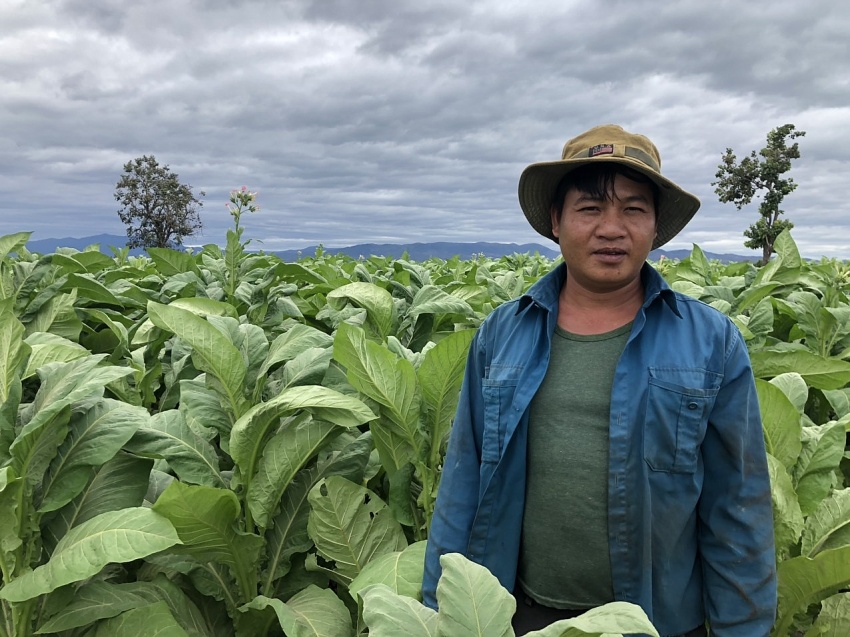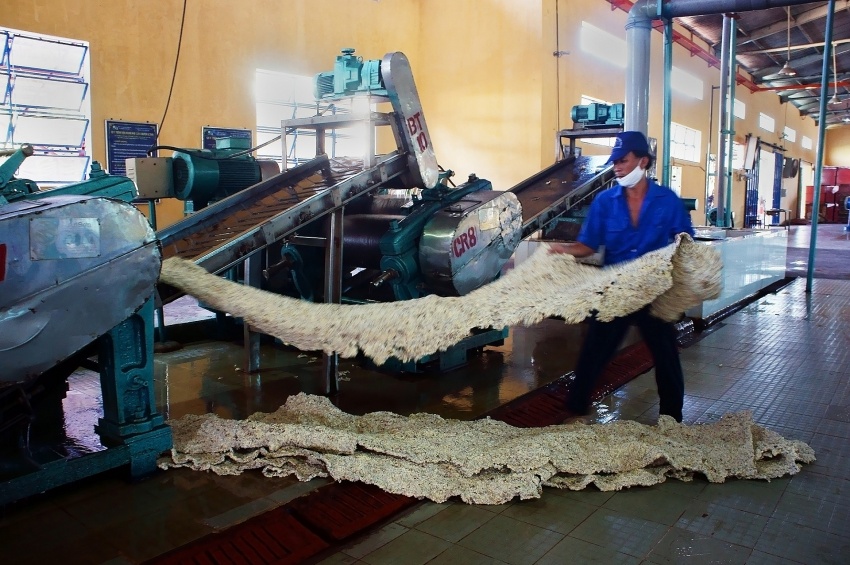INTERNATIONAL INVESTMENT
AND PORTAL
Amid the current geopolitical tensions and escalating prices for fuel and petrol, farmers see themselves confronted with added hardships after two years of the health crisis, which could be further worsened if a proposed increase of special consumption tax (SCT) on tobacco is enacted.
Data from the General Statistics Office shows that, in February, petrol prices increased by 5.8 per cent while food prices increased by 0.35 per cent compared to January. These are the main factors driving the consumer price index up 1 per cent, putting pressure on Vietnam's inflation.
Businesses and factories have been struggling during the past two years, with outstanding orders forcing them to cut off workers, reduce wages, and allowances.
Bringing businesses back on track remains a challenge, and the government has continuously asked ministries and sectors to find practical solutions to accompany firms in 2022.
In addition, global inflation is increasing, and some critical currencies of the world economy, such as the US dollar and Euro are depreciating, which may indicate that the recovery of businesses and the economy will continue very slowly with many difficulties and challenges in the next few years.
Farmer Nong Van Canh, who lives in Konia village in Gia Lai province, has been growing tobacco for nearly a decade. Canh said, growing tobacco brought a stable and sufficient income for his family of four people.
 Nong Van Canh in his family's field
Nong Van Canh in his family's field
However, the pandemic disrupted his plans because he could not hire workers. This made his farming unprofitable and, as a result, production slowed down, leaving his family without profits and him only with the choice to reduce the planting area.
"This year, I hope the business’ activities recover and people buy tobacco as they did before the pandemic,” Canh said.
Similarly, Siu H Lem from Ju village in the same province said, "We want nothing more than return to a normal life and have better conditions to take care of our crops and restore production and income.”
However, the rising prices of petrol, fertilisers, and labour rendered Siu and Canh's expectations thin.
Companies, meanwhile, are also facing increasing costs, especially if a proposal by deputies of the National Assembly to increase the SCT on tobacco is going to be approved.
 An SCT increasecould have far-reaching impacts on the life and income of farmers
An SCT increasecould have far-reaching impacts on the life and income of farmers
According to experts, balancing input costs and revenues whenever taxes increase, remains a tough challenge for businesses.
“The inevitable fact for many years is that, whenever domestic tax increase, it presents an opportunity for smugglers, causing trouble for genuine businesses with decreasing revenues and profits," an expert claimed.
"The incomes and living standards of workers is mostly affected. Farmers will also be hit hard because it will be difficult to maintain their growing area."
Lapa district, where Siu and Canh have their farms, is one of the localities with the largest tobacco plantations in Gia Lai province. In 2020-2021, the region had 700 tobacco farming households with an area of 1,119 hectares. These cultivated lands were converted from inefficient rice land.
With a stable income from tobacco plants, many farmers had signed contracts with businesses. Companies purchasing tobacco leaves in the locality have also contributed to helping people convert crops, develop the economy, and reduce poverty.
Currently, the average output can reach 3,360 tons per hectare under favourable conditions and without diseases. This output is consumed by businesses at an average price of around $2.50 per kg of qualified tobacco.
Thus, each growing household can earn at least $2,500 per ha after deducting costs. This turnover has been maintained stably over the years by both businesses and farmers with support for materials to ensure that farmers produce most efficiently.
However, the prices of fertilisers, petrol, and materials – as well as the labour force – have all increased. Besides this, the erratic weather in recent years was also detrimental to the crop.
The Department of Agriculture of Lapa estimates that in the 2021-2022 winter-spring crop, the district's tobacco area may decrease, thus affecting the district's economic development goals. If an SCT should be applied, the scenario could be a lot worse.
It is estimated that more than 100,000 farmers and about 10,000 employees in companies, as well as around one million retail employees in the tobacco industry, could be suffering from these impacts, as well as smuggled cigarettes.
Therefore, experts worry that proposals to increase the SCT on cigarettes could make farmers more miserable in that context.
There have been some recommendations that the government should not put forward the SCT at this time because localities, especially remote ones, would be most affected.
"If it is necessary to increase the SCT on some goods such as tobacco, a reasonable roadmap and implementation would be important for all parties to recover after the pandemic," an expert suggested.
By Hong Minh



















